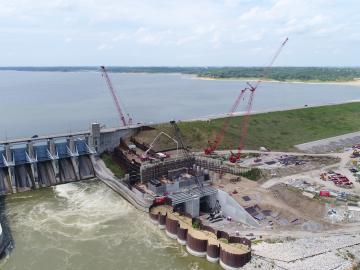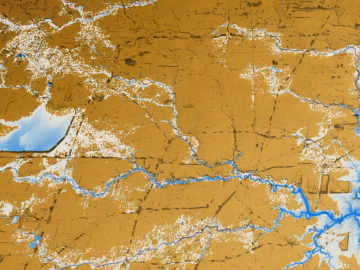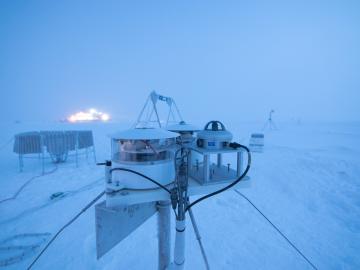
Filter News
Area of Research
- Biology and Environment (14)
- Computational Biology (1)
- Computational Engineering (1)
- Computer Science (2)
- Electricity and Smart Grid (1)
- Energy Science (46)
- Fusion Energy (1)
- Isotope Development and Production (1)
- Isotopes (1)
- Materials (7)
- Materials for Computing (1)
- Mathematics (1)
- National Security (4)
- Neutron Science (1)
- Quantum information Science (1)
- Sensors and Controls (1)
- Supercomputing (9)
- Transportation Systems (2)
News Type
News Topics
- (-) Grid (22)
- (-) Irradiation (2)
- (-) Mercury (3)
- (-) Summit (8)
- (-) Transportation (36)
- 3-D Printing/Advanced Manufacturing (34)
- Advanced Reactors (13)
- Artificial Intelligence (16)
- Big Data (17)
- Bioenergy (17)
- Biology (21)
- Biomedical (11)
- Biotechnology (4)
- Buildings (21)
- Chemical Sciences (13)
- Clean Water (14)
- Composites (11)
- Computer Science (42)
- Coronavirus (11)
- Critical Materials (12)
- Cybersecurity (3)
- Emergency (1)
- Energy Storage (32)
- Environment (48)
- Exascale Computing (1)
- Fossil Energy (1)
- Frontier (1)
- Fusion (9)
- High-Performance Computing (12)
- Hydropower (6)
- Isotopes (5)
- ITER (3)
- Machine Learning (14)
- Materials (36)
- Materials Science (34)
- Mathematics (3)
- Microscopy (11)
- Molten Salt (5)
- Nanotechnology (12)
- National Security (3)
- Neutron Science (27)
- Nuclear Energy (19)
- Partnerships (2)
- Physics (4)
- Polymers (10)
- Quantum Computing (5)
- Quantum Science (11)
- Security (1)
- Simulation (9)
- Space Exploration (10)
- Statistics (1)
Media Contacts
A study by Oak Ridge National Laboratory, the University of Copenhagen, the National Park Service and the U.S. Geological Survey showed that hotter summers and permafrost loss are causing colder water to flow into Arctic streams, which could impact sensitive fish and other wildlife.

A new Department of Energy report produced by Oak Ridge National Laboratory details national and international trends in hydropower, including the role waterpower plays in enhancing the flexibility and resilience of the power grid.

A new tool from Oak Ridge National Laboratory can help planners, emergency responders and scientists visualize how flood waters will spread for any scenario and terrain.

Fuel economy can take a tumble when temperatures plummet, according to the Department of Energy’s 2021 Fuel Economy Guide. Compiled by researchers at Oak Ridge National Laboratory, the guide includes several tips to improve a vehicle’s fuel performance.

If air taxis become a viable mode of transportation, Oak Ridge National Laboratory researchers have estimated they could reduce fuel consumption significantly while alleviating traffic congestion.


Researchers at Oak Ridge National Laboratory were part of an international team that collected a treasure trove of data measuring precipitation, air particles, cloud patterns and the exchange of energy between the atmosphere and the sea ice.

Oak Ridge National Laboratory researchers have developed a machine learning model that could help predict the impact pandemics such as COVID-19 have on fuel demand in the United States.

Oak Ridge National Laboratory scientists evaluating northern peatland responses to environmental change recorded extraordinary fine-root growth with increasing temperatures, indicating that this previously hidden belowground mechanism may play an important role in how carbon-rich peatlands respond to warming.

Researchers at Oak Ridge National Laboratory developed a method that uses machine learning to predict seasonal fire risk in Africa, where half of the world’s wildfire-related carbon emissions originate.


